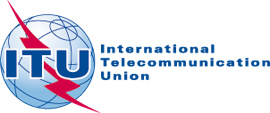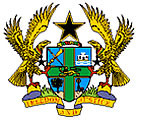|

|
Final
Draft
Programme
ITU Regional Seminar for the Africa
Region on Conformance and Interoperability Testing Centre(s)
Accra
(Ghana)
4-6 July 2011 |

|
|
What is
conformance and interoperability testing, and why is it important?
Conformance testing measures how accurately a product implements a
technical specification. The degree of compliance helps vendors and
users of the equipment to evaluate how the equipment will perform in the
network where it will integrate with other network devices to provide an
offered network service. Interoperability testing measures if two or
more products correctly implement the technical specifications necessary
to ensure successful integration supporting particular communication
protocols. Conformance and interoperability testing is important to
identify the non-compliance aspects of the equipment being tested, as
defined by accepted standards in the industry, that may interfere in the
quality of the network service being provided. High quality performing
products available for commercial use will accelerate widespread
deployment of the network technologies and their associated network
services.
For
service providers, conformance and interoperability testing is necessary
to reduce the probability of errors being introduced during the network
integration period, which can impact commercial deployment schedules.
Besides the financial costs associated with the resources required to
support an extended deployment schedule, other costs may manifest in
lost market share or of customers experiencing the impact of poorly
tested services.
Many service providers will require proof of compliance before accepting
a product into its network. By taking a proactive approach, equipment
manufacturers have the opportunity to any correct non-compliances, and
improve the marketability of the product. |
Day 1 -
Day 2 - Day 3
Day 1
(4 July 2011)
|
Registration: 9:00
|
|
9:30 – 10:00 hours
|
|
Opening Session
- Welcoming address from
Hosting Administration:
Mr. Kofi Totobi
Quakyi, Chairman of the Board of National Communications Authority (NCA)
- Welcoming address from
ITU: Mr. Malcolm Johnson, Director TSB
|
|
Coffee break: 10:00 - 10:30 hours |
|
10:30 – 12:30 hours
|
|
Session 1: ITU Activities on
Conformance and Interoperability
-
S1-1 -
Conformity assessment schemes and interoperability testing. Why
assess conformity? The benefits and principles of conformity
assessment and interoperability testing:
Keith Mainwaring
(ITU Consultant)
[
BIOGRAPHY |
ABSTRACT |
PRESENTATION
]
- S1-2 - Resolution 47, WTDC-10, BDT
Programme 1:
Riccardo Passerini (ITU)
[
BIOGRAPHY |
ABSTRACT |
PRESENTATION ]
-
S1-3 -
ITU Conformity and
Interoperability Programme:
William McCrum (ITU
Consultant)
[
BIOGRAPHY |
ABSTRACT |
PRESENTATION ]
- S1-4 -
ITU-D Activities on NGN
Guidelines:
Chali Tumelo (ITU)
[
BIOGRAPHY |
ABSTRACT |
PRESENTATION ]
|
| Lunch break: 12:30 - 14:00 hours |
|
14:00 - 18:00 hours
(Coffee Break: 15:30-16:00) |
|
Session 2: Global Approaches of Testing
-
S2-1 - Towards Implementation of NGN
Conformance and Interoperability Infrastructure in Africa: Thomas
Senaji (ICT Consultant/Senior Expert)
[
BIOGRAPHY |
ABSTRACT |
PRESENTATION
] -
S2-2 - Building Testing
Centers in the Region: Case study of Tanzania:
James M. Kilaba (TCRA, Tanzania)
[
BIOGRAPHY |
ABSTRACT |
PRESENTATION
] -
S2-3 - ITU-T standardization
activity on testing. Global approach for C&I Testing on the Model
Networks:
Denis Andreev (ZNIIS, Moscow)
[
BIOGRAPHY |
ABSTRACT |
PRESENTATION
]
-
S2-4
-
Towards a Harmonised Approach to Type Approval Certification: Case
study of Nigeria:
Dr. Bashir
Gwandu (NCC, Nigeria)
[
BIOGRAPHY |
ABSTRACT |
PRESENTATION
] -
S2-5 - Conformance and
Interoperability: Network development, Integration and
Interconnection: Mwenya K.
Mutale (ZICTA, Zambia)
[
BIOGRAPHY |
ABSTRACT |
PRESENTATION
] -
S2-6 - Benefits of
Conformance and Interoperability to the Developing Economies:
Joshua
Peprah
(Ghana)
[
BIOGRAPHY |
ABSTRACT |
PRESENTATION
] -
S2-7 - Existing
difficulties for Building a Testing Labs in the Region, suggestions
for centers at sub regional and regional levels: Die Roger Sanou
(Onatel, Burkina Faso)
[
BIOGRAPHY |
ABSTRACT |
PRESENTATION
]-
S2-8 -
State of Conformity Assessment for Equipment Requiring Type Approval
in Ethiopia: Bealu Demissie
(Ministry of Communications and Information Technology, Ethiopia)
[
BIOGRAPHY |
ABSTRACT |
PRESENTATION
]
|
Day 1 -
Day 2 - Day 3
Day 2
(5 July 2011)
|
9:00 – 12:30 hours
(Coffee Break: 10:30-11:00)
|
|
Session 3: Building Testing Labs
-
S3-1 -
Considerations in building Type Approval and Interoperability Test
Labs and areas of operation:
William McCrum (ITU Consultant)
[
BIOGRAPHY |
ABSTRACT |
PRESENTATION
] -
S3-2 - Maintaining Electronic Communications
Equipment Standards: Need for Type Approval Laboratory: Dr. Roman
Kuznar (Director, Sintesio Foundation)
[
BIOGRAPHY |
ABSTRACT |
PRESENTATION
]
S3-3 - UNIDO activities in the Region and SMTQ (Standards, Metrology, Testing and
Quality)
:
Francis Bartels and Victor Mills (UNIDO)
[
BIOGRAPHY 1 | BIOGRAPHY
2 |
ABSTRACT |
PRESENTATION
]
S3-4 - Needs and opportunities for
establishment of type approval test labs and role of MRAs:
William
McCrum (ITU Consultant)
[
BIOGRAPHY |
ABSTRACT |
PRESENTATION
]
S3-5 -
Criteria and characteristics to establish accredited Bodies/Labs in
the Regions for Type Approval/Homologation based on rules and
recommendations, and also best practices (e.g. ISO/IEC/CASCO
toolbox, guides and standards such as ISO/IEC 17011 and 17025) (Requirements
for ISO/IEC 17025 compliant testing laboratories):
Andrew Kwan (ITU Consultant)
[
BIOGRAPHY |
ABSTRACT |
PRESENTATION
]
S3-6 - Building
Capacity for Regional Conformity and Interoperability Programmes:
Jacob
Munodawafa (Southern
Africa Telecommunications Association - SATA)
[
BIOGRAPHY |
ABSTRACT |
PRESENTATION
]
|
| Lunch break: 12:30 - 14:00 hours |
|
14:00 – 17:30 hours
(Coffee Break: 15:30-16:00)
|
|
Session 3 (cont.): Building
Testing Labs
-
S3-7 - Conformity assessment schemes and
interoperability testing:
Keith Mainwaring (ITU Consultant)
[
BIOGRAPHY |
ABSTRACT |
PRESENTATION
]
-
S3-8 - Technical and economical steps to
be followed to build Testing Labs according to the identified
criteria and characteristics outlined in ISO/IEC 17025 Basic Steps
to establish an ISO/IEC 17025 compliant testing laboratory) :
Andrew Kwan (ITU Consultant)
[
BIOGRAPHY |
ABSTRACT |
PRESENTATION
]-
S3-9 - The ILAC, IAF and accreditation bodies,
MRAs (Mutual Recognition Agreements) reference documents, framework
and procedures for mutual recognition of conformity assessment of
telecommunication equipment and systems: Andrew Kwan (ITU
Consultant)
[
BIOGRAPHY |
ABSTRACT |
PRESENTATION
] -
S3-10 - Status,
responsibilities and coordination mechanism of national and
international bodies responsible for accreditation of Testing Labs.
Telecommunication training and funding organizations Accreditation
bodies): William McCrum and Andrew Kwan (ITU Consultants)
[
BIOGRAPHY 1 | BIOGRAPHY
2 |
ABSTRACT |
PRESENTATION
1
|
PRESENTATION
2
]-
S3-11 -
The ITU Conformity Database. Analysis of ITU Recommendations
suitable to conformance testing. The role of the ITU-T Study Groups
and the ITU-T conformity Database:
Keith Mainwaring (ITU Consultant)
[
BIOGRAPHY |
ABSTRACT |
PRESENTATION
]
|
Day 1 -
Day 2 - Day 3
Day 3
(6 July 2011)
|
9:00 – 12:30 hours
(Coffee Break: 10:30-11:00)
|
|
Session 3 (cont.): Building
Testing Labs
-
S3-12 - Available test suites from any SDO
(Standards Development Organization) and proposal for ITU for the
development of new test suite (Bridging Testing Gap: BTG):
Wayne Zeuch (ITU Consultant)
[
BIOGRAPHY |
ABSTRACT |
PRESENTATION
] -
S3-13 - Role of International telecommunication testing
centers (ITTC). Approaches of Testing Labs creation. Purposes, tasks
and facilities of Testing Labs:
Denis Andreev (ZNIIS, Moscow)
[
BIOGRAPHY |
ABSTRACT |
PRESENTATION
] -
S3-14 - ITTC Unified and test network solution for the
Region. Impact and cost penalty due to lack of unified work program
for Region (Regional specific requirements, methodology of testing):
Wayne Zeuch (ITU Consultant)
[
BIOGRAPHY |
ABSTRACT |
PRESENTATION
]
S3-15 - Testing experience of ITTC for CIS Region:
Denis Andreev (ZNIIS, Moscow)
[
BIOGRAPHY |
ABSTRACT |
PRESENTATION
]
|
| Lunch break: 12:30 - 14:00 hours |
|
14:00 – 16:00 hours
|
|
Session 3 (cont.): Building Testing Labs
-
S3-16 -
Identification of the roadmap, Economical impact (cost, maintenance
and capacity building) strategies (e.g. locations and not
duplication of areas of testing: market needs analysis) and
guidelines in accordance with the environment for test centre
project document and the roll out plan:
Wayne Zeuch (ITU Consultant)
[
BIOGRAPHY |
ABSTRACT |
PRESENTATION
] -
S3-17 - Possible location and areas of interest
for
Test Centre(s):
William McCrum (ITU Consultant)
[
BIOGRAPHY |
ABSTRACT |
PRESENTATION
] -
S3-18 -
Conformity and Interoperability Challenges and Opportunities -
Experience of Operators:
Jacob Munodawafa (Southern
Africa Telecommunications Association - SATA)
[
BIOGRAPHY |
ABSTRACT |
PRESENTATION
]
|
|
Coffee break: 16:00 – 16:30 hours |
|
16:30 – 17:30 hours |
|
Round Table
Final/Closing Session: steps to be undertaken to facilitate the creation
of regional test labs and to create capacity building opportunities at a
regional level. Establishment of further actions economical, technical
and regional presence. |
Day 1 -
Day 2 - Day 3
|



